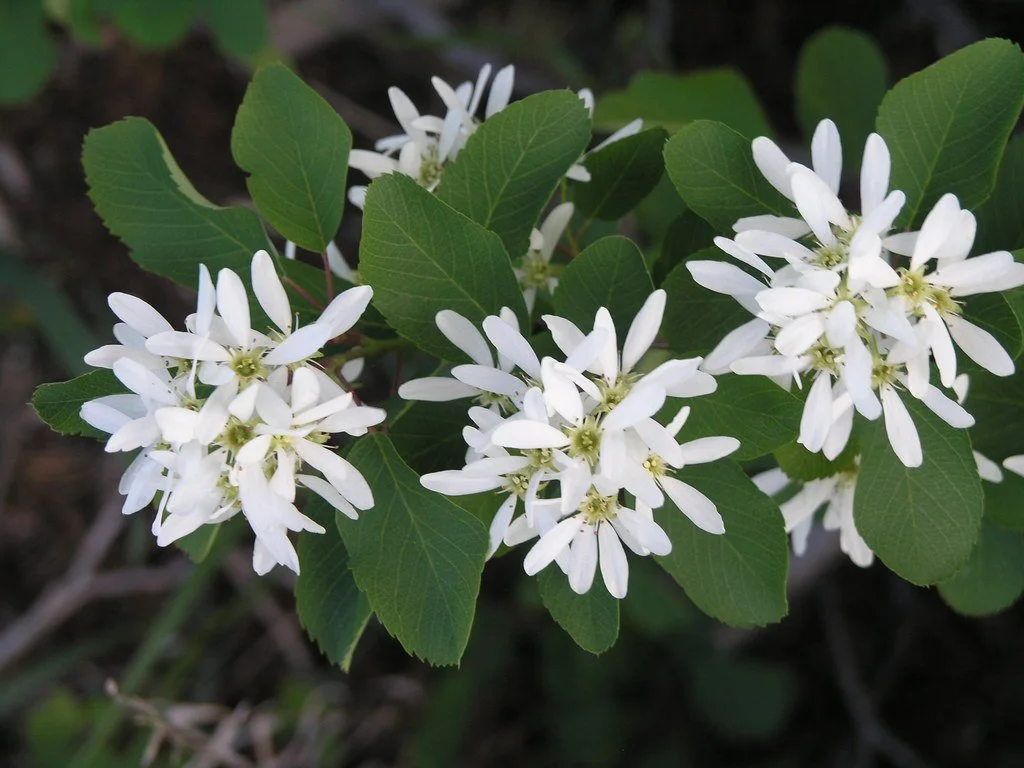Allegheny Serviceberry
Bundle of 10 | Size: 8-16” | Age: 2-0
Allegheny Serviceberry - (Amelanchier laevis)
Native to our area. Mature Height: 15-30’. Tolerates sun to full shade of moderate to well drained soils in upland forests, forest edges. Flower is white in spring, yielding reddish or purple berry-like fruit. Fruit is consumed by birds and mammals and buds are browsed by mammals; attracts native bees and predatory insects that prey on insect pests. Planted as ornamental or wildlife shrub; sometimes used as bonsai plant.
Bundle of 10 | Size: 8-16” | Age: 2-0
Allegheny Serviceberry - (Amelanchier laevis)
Native to our area. Mature Height: 15-30’. Tolerates sun to full shade of moderate to well drained soils in upland forests, forest edges. Flower is white in spring, yielding reddish or purple berry-like fruit. Fruit is consumed by birds and mammals and buds are browsed by mammals; attracts native bees and predatory insects that prey on insect pests. Planted as ornamental or wildlife shrub; sometimes used as bonsai plant.
Bundle of 10 | Size: 8-16” | Age: 2-0
Allegheny Serviceberry - (Amelanchier laevis)
Native to our area. Mature Height: 15-30’. Tolerates sun to full shade of moderate to well drained soils in upland forests, forest edges. Flower is white in spring, yielding reddish or purple berry-like fruit. Fruit is consumed by birds and mammals and buds are browsed by mammals; attracts native bees and predatory insects that prey on insect pests. Planted as ornamental or wildlife shrub; sometimes used as bonsai plant.
Soils: mesic, well drained soils
Habitat: upland forests, forest edges
Flower Color: white
Bloom Time: spring
Fruit: reddish or purple berry-like pome
Deciduous Small Tree
Other Names: Smooth Shadbush
Native to our area
Range: Midwest, eastern U.S., eastern Canada
Typical Mature Height: 15-30 feet
Light Requirement: sun, partial shade, shade
Uses: planted as an ornamental and/or wildlife shrub; sometimes used as a bonsai plant
Wildlife Value: fruit is consumed by birds and mammals and buds are browsed by mammals; attracts native bees and predatory insects that prey on insect pests

